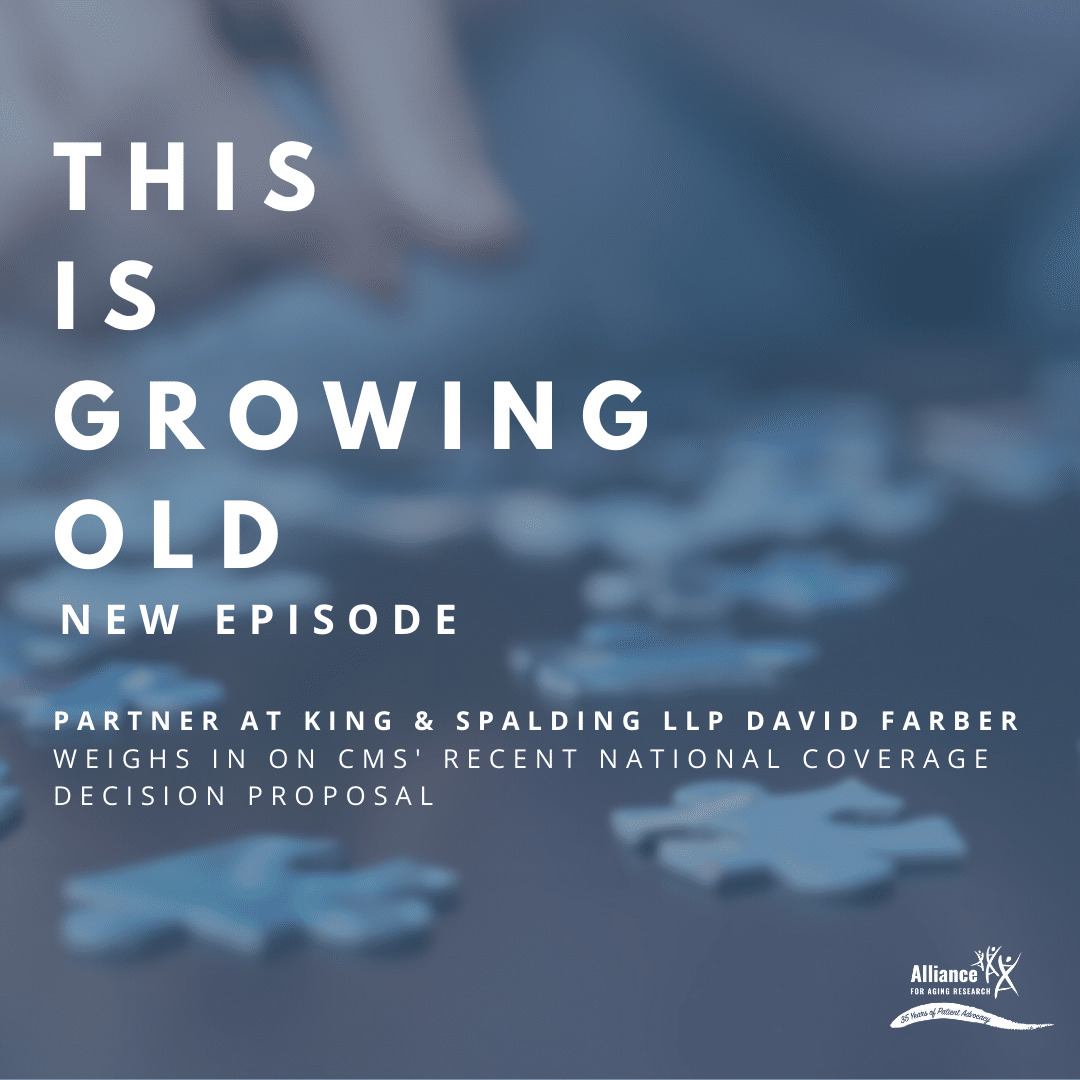- Alzheimer’s Disease and Related Dementias
- Antimicrobial Resistance
- Appropriations
- Cardiovascular Disease
- Care Innovation and Access
- Clinical Trials
- COVID-19
- Family Caregiving
- Health Equity
- Healthy Aging
- Home Health and Community-Based Services
- Medicaid
- Medicare
- Mental Health
- Nursing Home and Post-hospital Care
- Nutrition
- Persistent Pain
- Prescription Drug Affordability
- Quality and Outcomes
- Research Funding
- Sarcopenia and Mobility
- Telehealth
- Vaccination
- Value Assessment and Pricing
- Vision Loss
Medicare

Medicare is the federal health insurance program that provides coverage for Americans 65 years of age and older. Almost all older adults have health insurance through Medicare. The program also provides coverage for people with permanent disabilities under the age of 65. The program is administered by the Centers for Medicare & Medicaid Services (CMS) and private entities contracting through the federal government.
When a person turns 65, they can select to either enroll in original, also known as fee-for-service (FFS), Medicare or enroll in Medicare Advantage (MA). Each fall, during a period known as open enrollment, a beneficiary can select FFS Medicare, enroll in an MA plan, or switch MA plans.
There are four parts to the program:
FFS Medicare Parts A & B
Medicare Part A: Covers inpatient and hospital coverage, including hospitalizations, physician services, prescription drugs, skilled nursing facilities, home health visits, and hospice care.
Medicare Part B: Covers outpatient medical coverage, such as physician’s services, outpatient hospital services, durable medical equipment, and other medical services. Generally, enrollment in Part B is voluntary and requires beneficiaries to pay a premium.
Medicare Advantage & Prescription Drug Plans
Medicare Part C (Medicare Advantage): MA serves as an alternative to FFS Medicare. MA plans are private health insurance plans that contract with the government to service a region or local area that eligible beneficiaries can choose to enroll in. These plans may offer more services and lower co-payments, but can charge higher monthly premiums. These types of plans have more restricted networks than traditional Medicare and typically require beneficiaries to see a primary care physician to coordinate care with specialists.
Medicare Part D: Covers outpatient prescription drugs to Medicare beneficiaries who elect to enroll in the program. Medicare beneficiaries must select a private drug plan (PDP), which only offers insurance for prescription medications, or select Medicare Advantage (MA) prescription drug plan (MA-PD), which provides MA and Part D prescription drug coverage in a single plan.
Healthy Aging Blog on Medicare
Medicare News & Updates

The Alliance for Aging Research is a proud recipient of Candid’s Platinum Seal of Transparency.

The Alliance for Aging Research is proud to be rated a 4-star charity by Charity Navigator.
Living Longer and Loving It
Sign up for our monthly e-mail newsletter for the latest information on
scientific research on aging and health.




